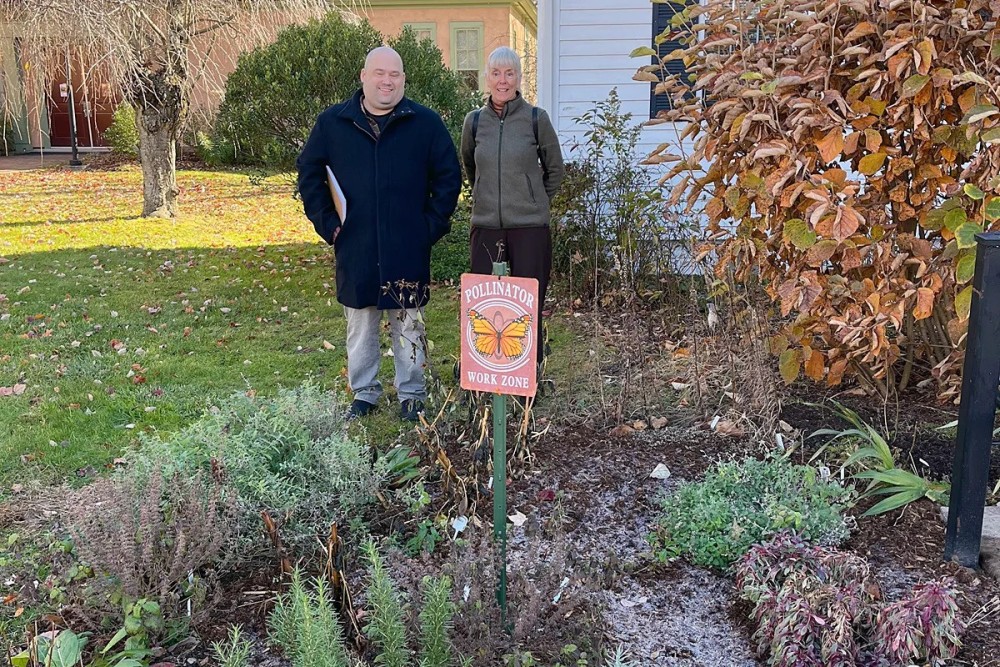Creation justice project helps Episcopal churches find efforts that are right for them

Members of All Saints Episcopal Church in Hadley, Massachusetts, created a pollinator garden after taking part in An Episcopal Path to Creation Justice's pilot project. (Photo by Rachel Field)
A congregation that wants to be engaged in creation care has many things it can do—pollinator gardens, solar panels, energy audits, legislative advocacy, recycling, composting—but Rachel Field, part of the leadership team at An Episcopal Path to Creation Justice, says that having so many options can make it hard, if not impossible, for a church to find the approach that is best for it.
The Path, as the project is known, completed a six-month pilot program earlier this year, which was made possible by a $20,000 grant in 2023 from the Episcopal Church’s Task Force on Creation Care and Environmental Racism. Rather than provide the 12 participating churches with a list of environmentally friendly activities, they each were assigned a trained companion —someone other than their parish priest—who helped church members discern what they felt called to do.
The Path grew out of the grassroots Creation Care Justice Network in the Episcopal dioceses of Massachusetts and Western Massachusetts, and 10 of the pilot churches were in those two dioceses, with others from Connecticut and Maine.





